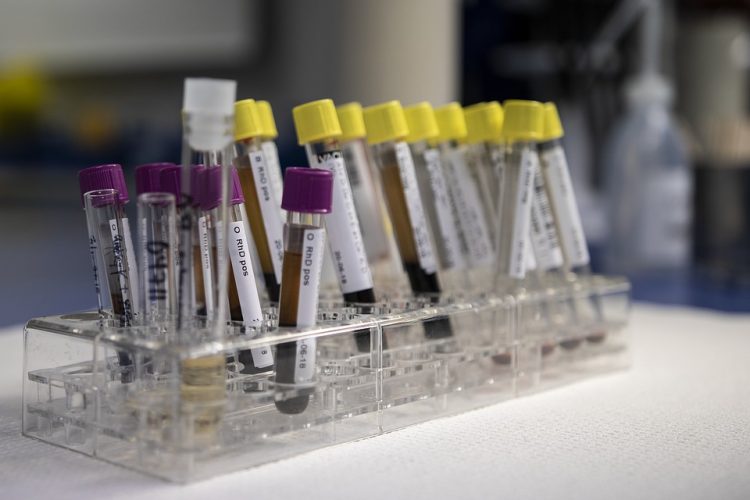A new study by University of Strathclyde has led to a promising blood test that doctors may soon use to accurately detect brain cancer. The patented technology uses infrared light to produce a “bio-signature” of a blood sample and applies artificial intelligence to check for the signs of cancer.
According to the National Cancer Institute, around 0.6% of people will develop brain cancer or another cancer of the nervous system in their lifetime. However, the 5 year survival rate for those who do receive such a diagnosis is less than 33%. Largely, the poor outlook is due to the fact that brain tumors have very nonspecific symptoms, which makes them more difficult to distinguish from other conditions.
The problem is that symptoms of brain tumor are quite nonspecific, such as headache, or memory problems. It can be difficult for doctors to tell which people are most likely to have a brain tumor
This research is being commercialised by ClinSpec Diagnostics Limited, an award-winning company spun out from the University. The work has now been published in the journal Nature Communications, and also involved clinicians at the Western General Hospital in Edinburgh, the University of Liverpool and the Walton NHS Foundation Trust in Liverpool.
“This is the first publication of data from our clinical feasibility study and it is the first demonstration that our blood test works in the clinic. Earlier detection of brain tumours in the diagnostic pathway brings the potential to significantly improve patient quality of life and survival, whilst also providing savings to the health services.” commented lead researcher, Dr Matthew J. Baker, Reader in Strathclyde’s Department of Pure and Applied Chemistry and Chief Scientific Officer with ClinSpec Diagnostics.
The results presented are the beginning of a clinical roadmap of studies, that aim to bring the technology through regulatory approval, and ultimately to provide patients with rapid access to diagnosis and treatment.
“With this new test, we have shown that we can help doctors quickly identify which patients with these non-specific symptoms should be prioritized for urgent brain imaging. This means a more rapid diagnosis for people with a brain tumor, and quicker access to treatment.” Commented Dr Paul Brennan, Senior Clinical Lecturer and Consultant Neurosurgeon at the University of Edinburgh, a partner in the study.
The Brain Tumor Charity ambassador Hayley Smith, whose husband Matthew is currently living with a glioblastoma brain tumor is backing this research. They learned in July 2016, three weeks after Matthew’s surgery, that his tumor was a grade 4 glioblastoma. Hayley said: “We urgently need to find new treatments and ultimately a cure as more and more people are being diagnosed with this devastating disease. It is very encouraging to hear that this blood test can lead to a quicker diagnosis for brain cancer. Matthew’s doctors believe that his brain tumor was slowly growing for around 14 years but only started presenting symptoms that could be linked to a brain tumour around six weeks before he ended up in A and E following a seizure. Initially these symptoms had been misdiagnosed as a migraine- had this new test been available it might have been spotted earlier. Scotland now has research teams from all over the world and all are experts in their fields. It’s so promising to know that we have the best of the best looking into quicker diagnosis and new treatments. This kind of test will be vital to patients, helping people to get the correct diagnosis quicker which ultimately will help people to get the urgent medical care that they need.”
The team explained in their paper, that they used a technique called attenuated total reflection-Fourier transform infrared (ATR-FTIR) spectroscopy and coupled it with machine learning technology to detect brain cancer.
The researchers explain that the technique is “a simple, label free, noninvasive, nondestructive” way of analyzing the biochemical profile of a blood sample without requiring extensive preparation of the sample.
Dr. Baker and team trained a machine learning algorithm to use these biochemical fingerprints to diagnose brain cancer in a retrospective cohort of 724 people. This cohort included people with primary and secondary cancers as well as control participants without cancer. They then used the algorithm to predict brain cancer cases in a sample of 104 participants. Of these, 12 people had cancer, including four cases of glioblastoma. This is one of the most aggressive forms of brain tumor.
The study findings revealed a sensitivity of 83.3% and a specificity of 87% for the blood test. “With this new test, we have shown that we can help doctors quickly identify which individuals with these nonspecific symptoms should be prioritized for urgent brain imaging,” says Dr. Brennan.
These study findings suggest that this approach may be useful to doctors in helping to prioritize patients needing brain scans in order to diagnose tumors. While the proposed system does not offer an absolute diagnosis, it could play a significant role in the diagnostic process as a triage tool.
This type of diagnostic test will be vital to patients, helping people to get the correct diagnosis quicker, which ultimately will help individuals to get the urgent medical care that they need.






